Lower Control Arm Ball Joint Replacement Rear Wheel Drive
Removal Procedure
Tools Required
| • | J 9519-E Ball
Joint Remover and Installer Set |
- Raise the vehicle. Refer to
Lifting and Jacking the Vehicle
in General Information.
- Remove the tire and wheel assembly. Refer to
Wheel Removal
in Tires and Wheels.
Caution: Floor jack must remain under the lower control arm during
removal and installation to retain the lower control arm in position. Failure
to do so could result in personal injury.
- Place a floor jack under the control arm spring seat. Raise the jack
until the jack just supports the lower control arm.
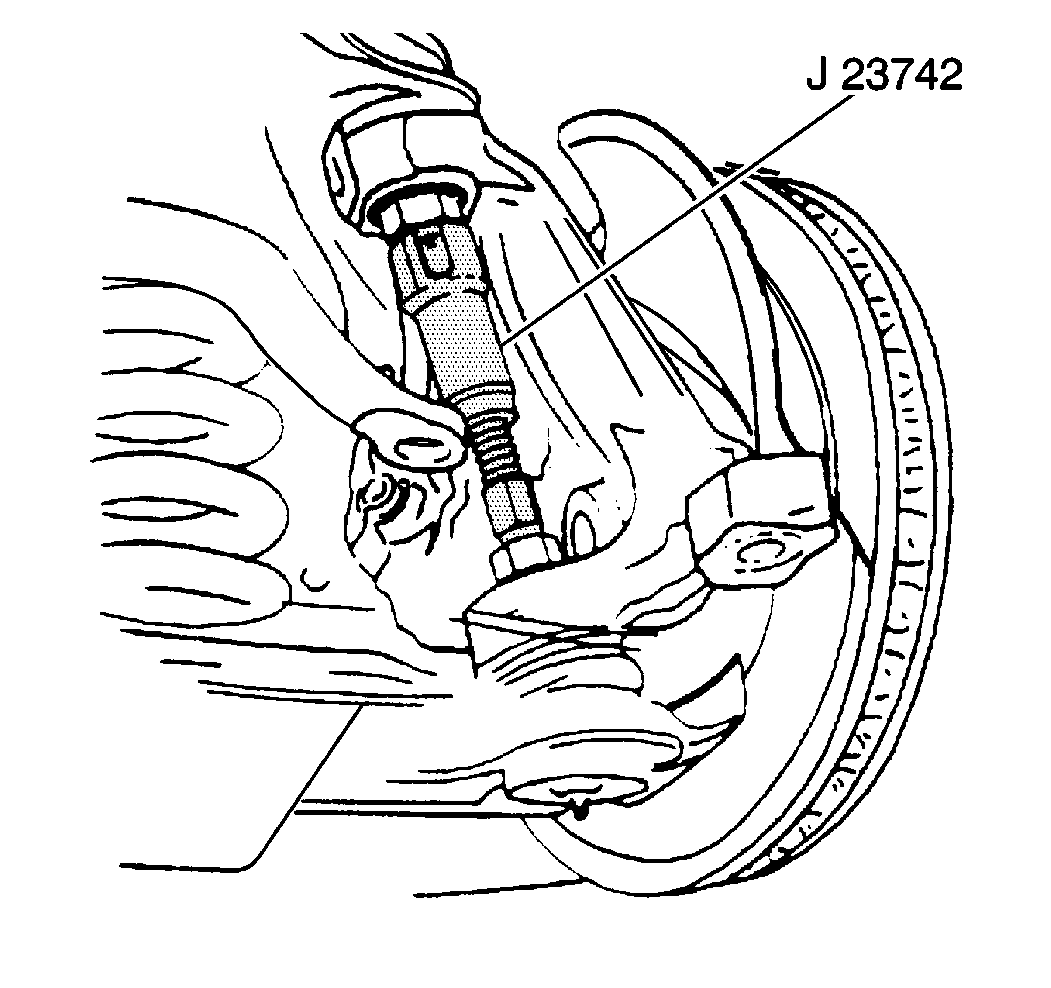
- Remove the lower ball
joint cotter pin and the nut.
| 4.1. | Use the J 23742
in
order to break the lower ball joint free from the steering knuckle. |
| 4.2. | Pull the steering knuckle free from the lower ball joint. |
- Block the steering knuckle/hub assembly out of the way.
| • | Place a wood block between the frame and the upper control arm. |
| • | Make sure the brake hose is free of any tension. |
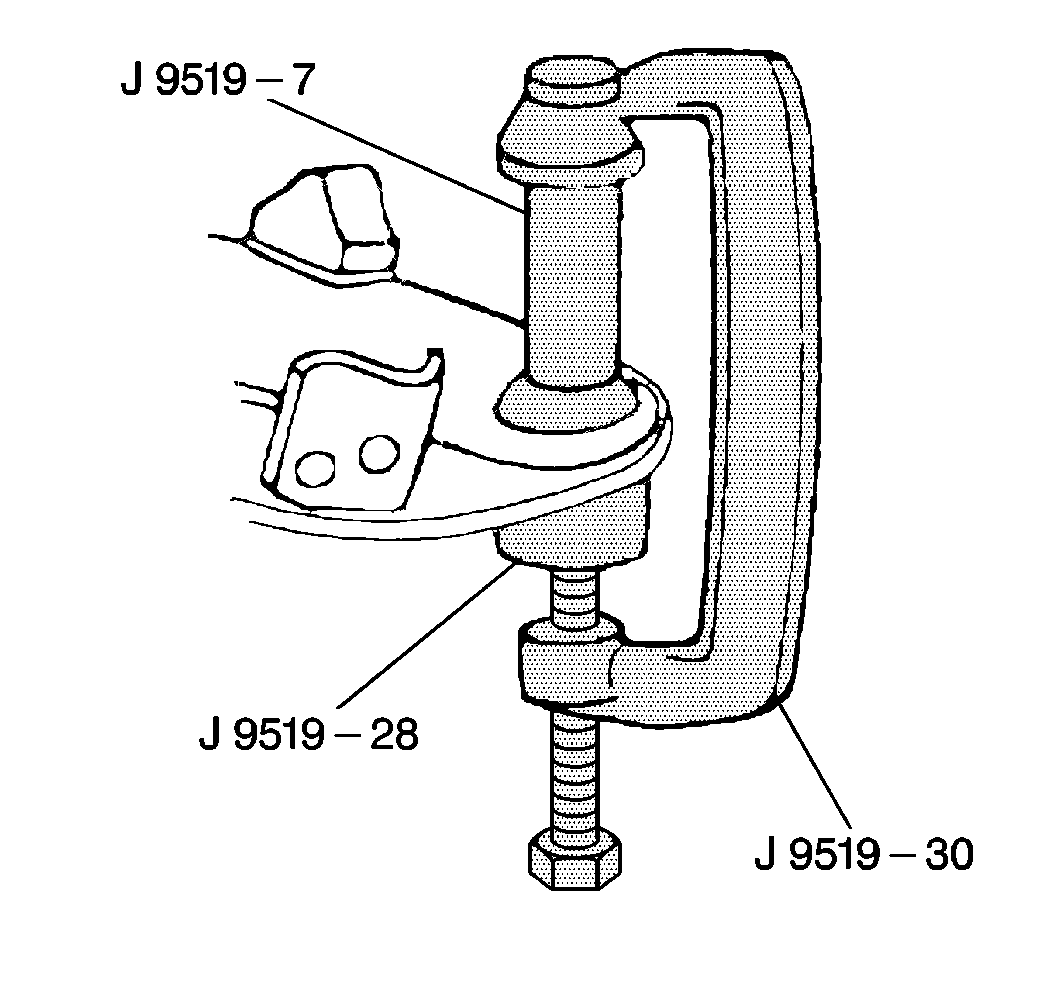
- Remove the lower ball
joint from the lower control arm.
| 6.1. | Remove the rubber grease seal from the lower ball joint. |
| 6.2. | Remove the grease fitting. |
| 6.3. | In order to press out the lower ball joint, use the J 9519-E
as shown. |
Installation Procedure
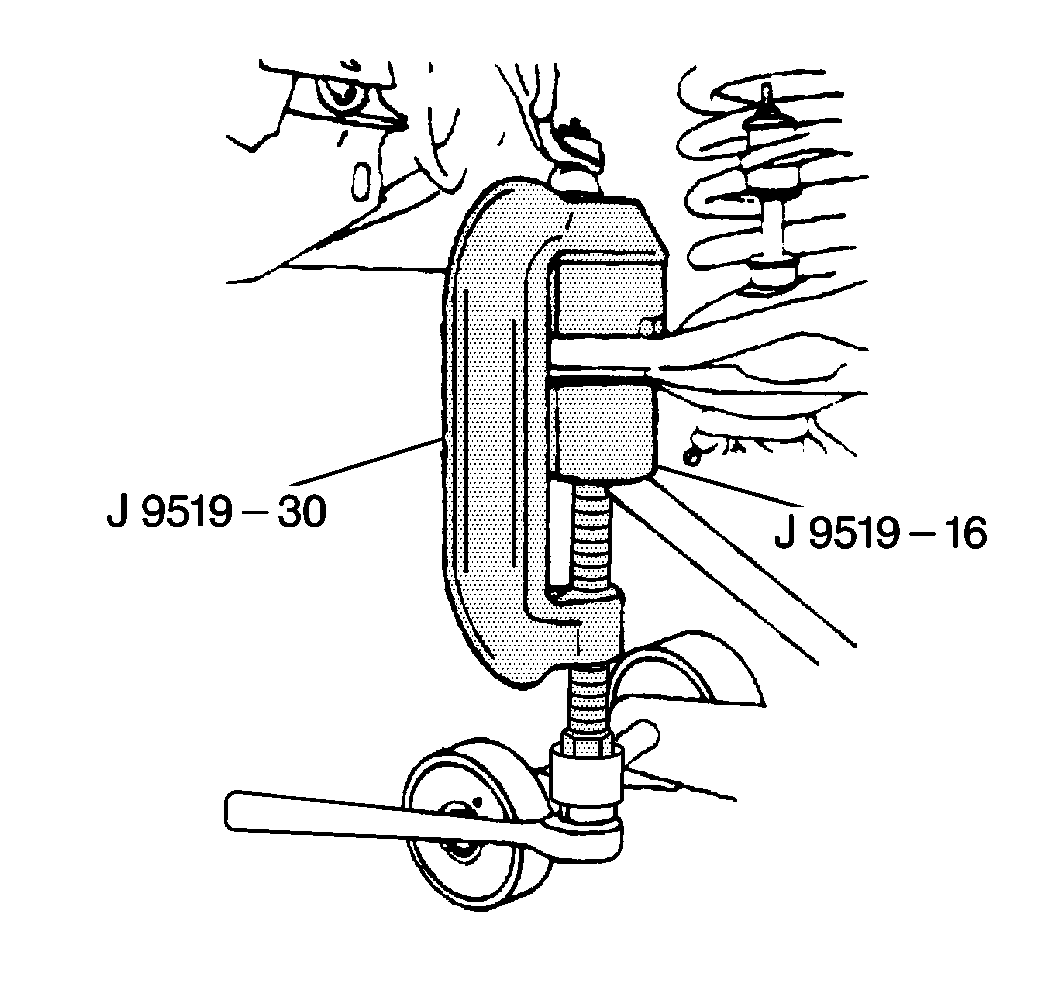
- Connect the lower ball
joint to the lower control arm.
| 1.1. | Position the lower ball joint into the lower control arm. Press
in until the ball joint bottoms in the control arm. |
| 1.2. | In order to press the lower ball joint into place, use the J 9519-E
as shown. |
- Place the grease seal and the grease fitting onto the lower ball
joint.
| • | The grease-purge hole of the seal must face inboard. |
| • | Press the grease seal into place. The seal must be fully seated
on the ball joint. |
- Place the steering knuckle/hub assembly onto the lower ball joint.
| • | Press the steering knuckle/hub assembly onto the lower ball joint
until the ball joint is fully seated. |
Notice: Use the correct fastener in the correct location. Replacement fasteners
must be the correct part number for that application. Fasteners requiring
replacement or fasteners requiring the use of thread locking compound or sealant
are identified in the service procedure. Do not use paints, lubricants, or
corrosion inhibitors on fasteners or fastener joint surfaces unless specified.
These coatings affect fastener torque and joint clamping force and may damage
the fastener. Use the correct tightening sequence and specifications when
installing fasteners in order to avoid damage to parts and systems.
- Install the lower
ball joint nut.
Tighten
Tighten the nut to 125 N·m (90 lb ft).
- Install a new cotter pin. Tighten the nut up to an additional 1/6
amount in order to insert the cotter pin through the lower ball joint stud.
Bend the pin ends against the nut flats.
- Remove the floor jack.
- Using a grease gun, grease to the lower ball joint until grease
appears at the lower ball joint grease seal.
- Install the tire and wheel assembly. Refer to
Wheel Installation
in Tires and Wheels.
- Adjust the wheel bearings. Refer to
Wheel Bearing Adjustment
.
- Lower the vehicle.
- Check the front wheel alignment. Refer to
Wheel Alignment Specifications
in Wheel Alignment.
Lower Control Arm Ball Joint Replacement Full-Time Four-Wheel Drive
Removal Procedure
Tools Required
J 35917 Ball Joint
Remover
- Raise the vehicle. Refer to
Lifting and Jacking the Vehicle
in General Information.
- Remove the tire and wheel assembly. Refer to
Wheel Removal
in Tires and Wheels.
- Unload the torsion bar. Refer to
Torsion Bar Replacement
.
Mark the adjuster bolt for loading the torsion bar.
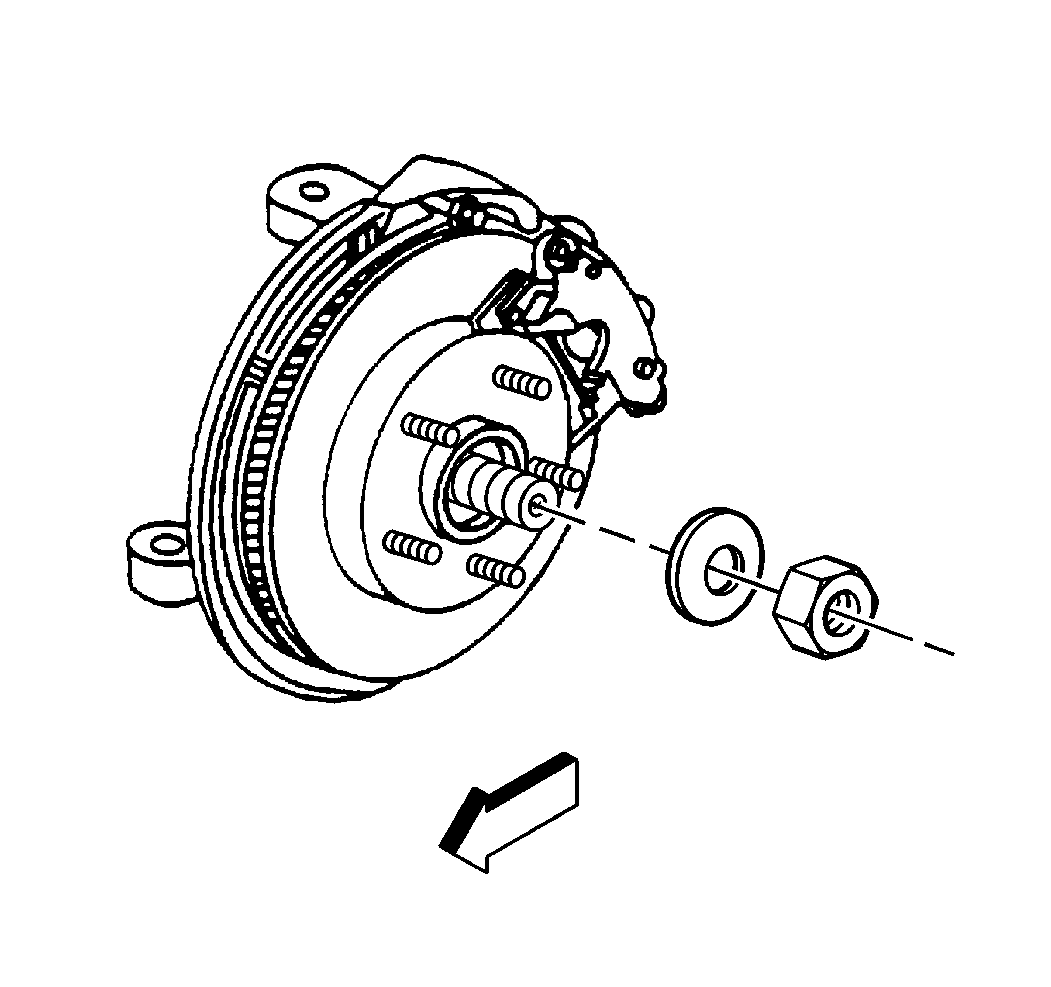
- Remove the drive axle
nut and the washer.
Notice: Support the caliper with a piece of wire to prevent damage to the brake
line.
- Remove the brake caliper. Refer to
Brake Caliper Replacement
in Disc Brakes.
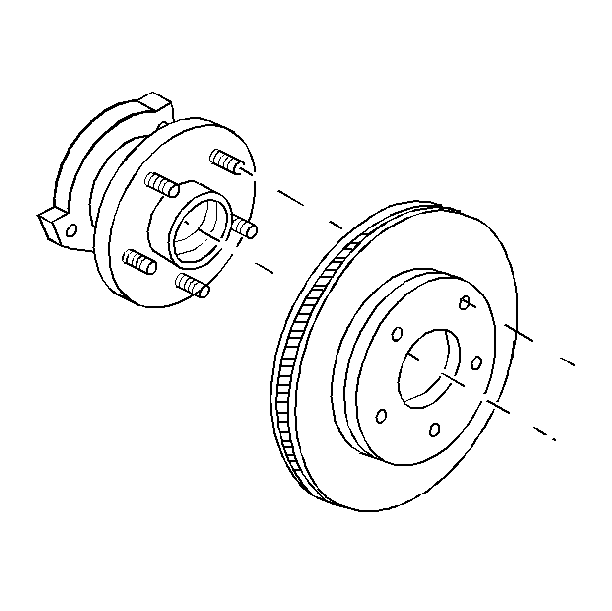
- Remove the brake rotor.
- Disconnect the speed sensor electrical connector.
- Remove the speed sensor from the bearing. Refer to
Wheel Speed Sensor Replacement
in Antilock
Brake System.
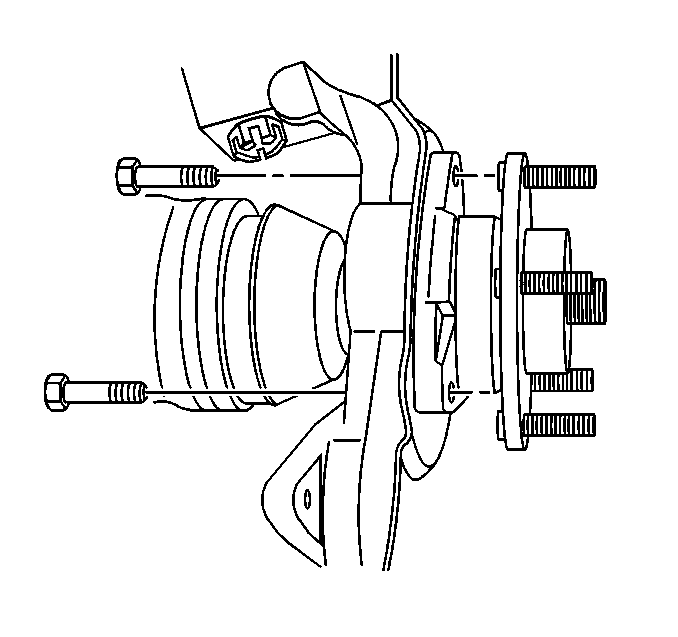
- Remove the bolts from the hub and bearing
assembly.
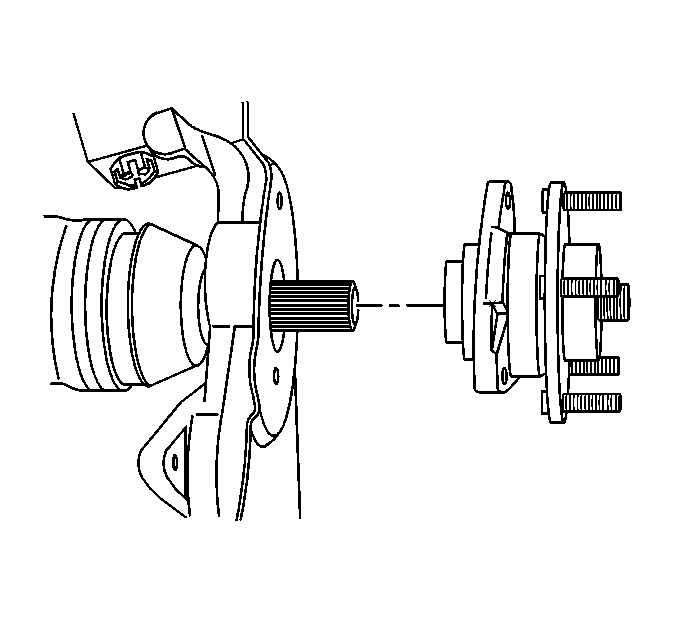
Important: Lay the wheel hub and bearing assembly on the wheel hub bolts on the
outboard side. This prevents damage or contamination to the bearing seal.
- Remove the hub and bearing assembly.
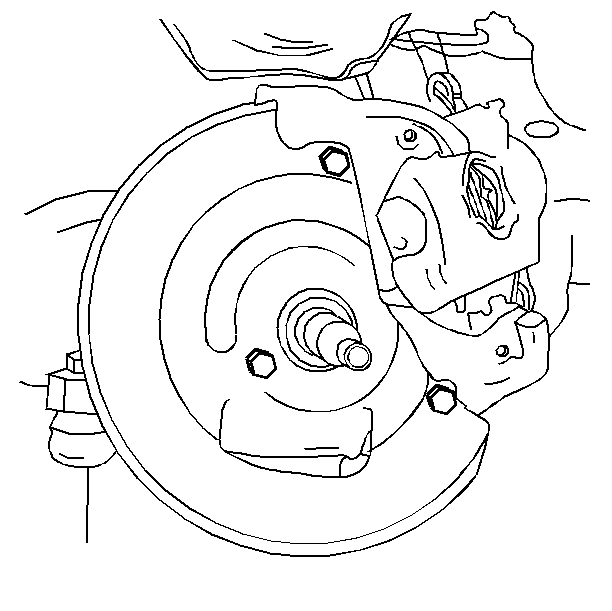
- Remove the front splash
shield.
| 11.1. | Remove the two bolts. |
| 11.2. | Pivot the shield in order to gain access to the tie rod. |
- Disconnect the outer tie rod end from the steering knuckle. Refer
to
Tie Rod Replacement
in Steering Linkage.
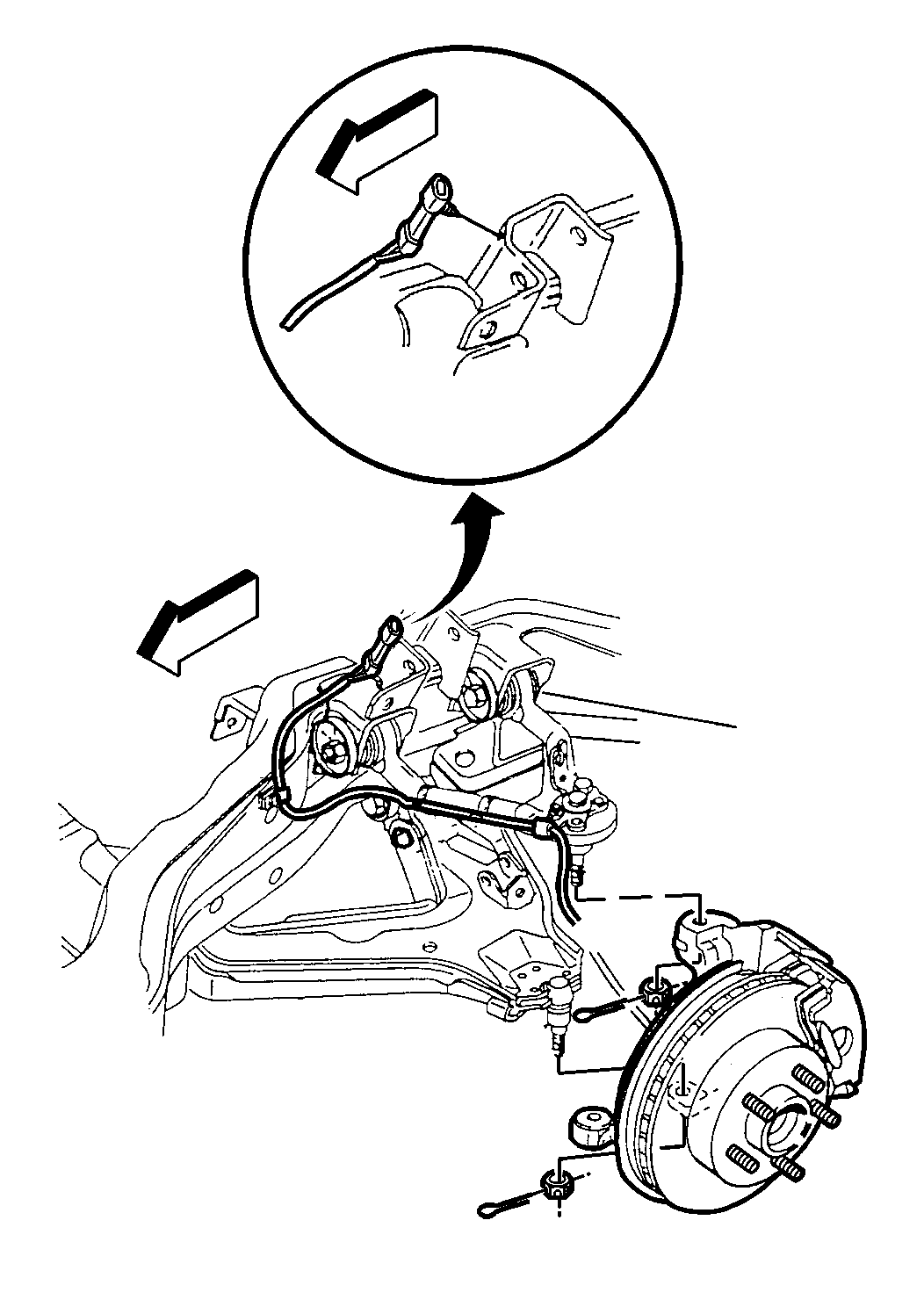
- Remove the lower ball
joint cotter pin.
- Remove the lower ball joint nut.
- Using the J 35917
, disconnect the knuckle from the lower ball joint.
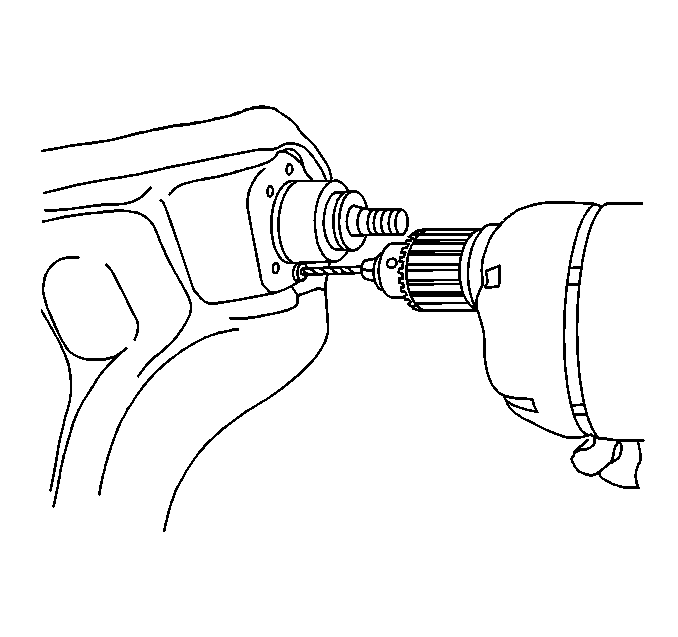
- Remove the lower ball
joint rivets.
| 16.1. | Center punch the bottom of the rivets. |
| 16.2. | Using a 3 mm (1/8 in) drill bit, drill a guide
hole 13 mm (½ in) into the rivet heads. |
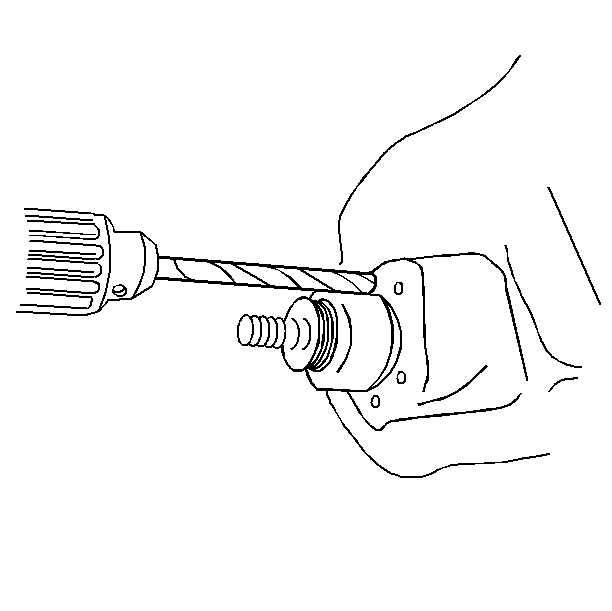
- Using a 8 mm (5/16 in)
drill bit, drill the rivet head off. Drill a hole two-thirds the length of
the rivet shank using an 8 mm (5/16 in) drill bit.
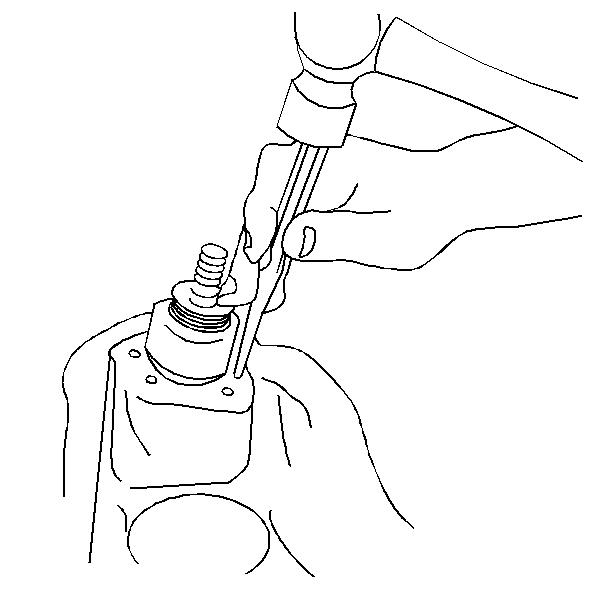
- Using a 8 mm (5/16 in)
pin punch, punch out the rivets.
- Remove the ball joint.
Installation Procedure
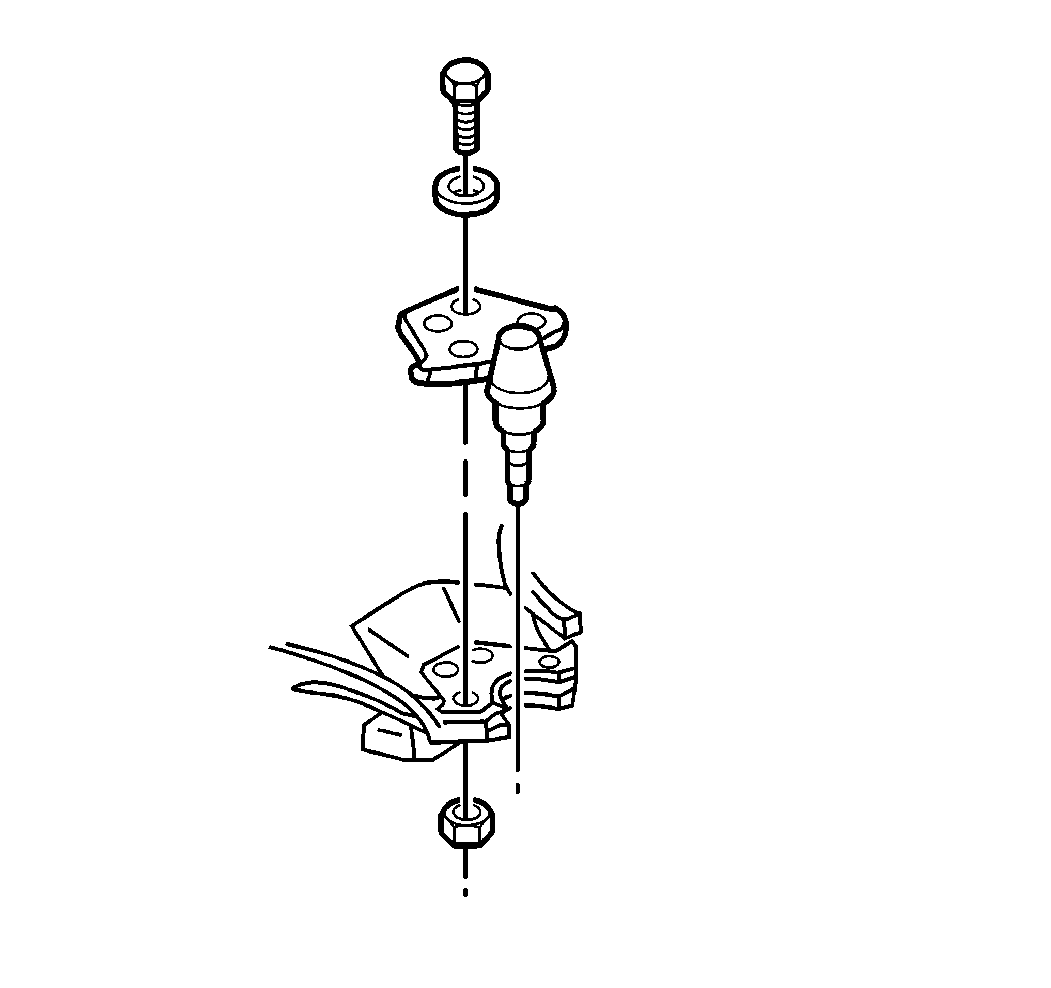
- Install the ball joint
to the lower control arm.
Notice: Use the correct fastener in the correct location. Replacement fasteners
must be the correct part number for that application. Fasteners requiring
replacement or fasteners requiring the use of thread locking compound or sealant
are identified in the service procedure. Do not use paints, lubricants, or
corrosion inhibitors on fasteners or fastener joint surfaces unless specified.
These coatings affect fastener torque and joint clamping force and may damage
the fastener. Use the correct tightening sequence and specifications when
installing fasteners in order to avoid damage to parts and systems.
- Install the bolts,
the flat washers, and the nuts to the ball joint.
Tighten
Tighten the nuts to 30 N·m (22 lb ft).

- Install the lower ball
joint into the steering knuckle. Raise the lower control arm with the jack.
- Install the ball joint nut.
Tighten
Tighten the nut to 128 N·m (95 lb ft).
- Install a new cotter pin. Tighten the nut up to an additional 1/6
amount in order to insert the cotter pin through the lower ball joint stud.
Bend the pin ends against the nut flats.
- Using a grease gun, grease the lower ball joint until grease appears
at the lower ball joint seal.
- Connect the outer tie rod end to the steering knuckle. Refer to
Tie Rod Replacement
in Steering
Linkage.

- Install the front splash
shield and the splash shield bolts.
Tighten
Tighten the bolts to 14 N·m (124 lb in).

- Install the hub and bearing assembly
to the steering knuckle.

- Install the bolts.
Tighten
Tighten the bolts to 90 N·m (66 lb ft).
- Connect the drive axle to the hub and bearing assembly.
- Install the speed sensor to the bearing. Refer to
Wheel Speed Sensor Replacement
in Antilock
Brake System.
- Connect the speed sensor electrical connector.

- Install the brake rotor.
- Install the brake caliper. Refer to
Brake Caliper Replacement
in Disc Brakes.

- Install the drive axle
washer and the nut.
Tighten
Tighten the nut to 200 N·m (147 lb ft).
- Load the torsion bar. Set the adjuster bolt at the mark made during
disassembly. Refer to
Torsion Bar Replacement
.
- Install the tire and wheel assembly. Refer to
Wheel Installation
in Tires and Wheels.
- Lower the vehicle.
- Check the front wheel alignment. Refer to
Wheel Alignment Specifications
in Wheel Alignment.



















